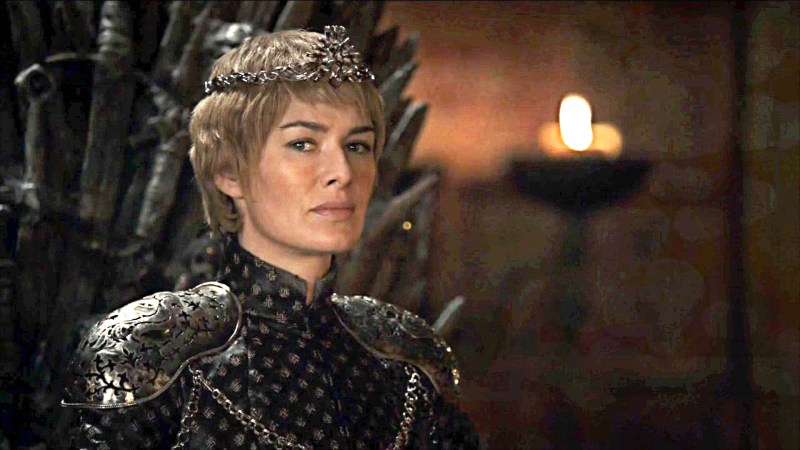Spoilers for “Game of Thrones” Season 8 follow.
As the hit HBO fantasy drama airs its final season, fans are coming closer than ever to having their burning question answered: How does it all end? This article will attempt to predict how based on everything that’s happened so far. Although this was written in between episodes 3-4 of the final season, it is consistent with the events of episode four.
This is a long theory, but I promise it’s worth every minute. The theory makes sense of the true meaning of the Night King’s symbol and its relevance for the plot going forward as well as the ending.
I started by puzzling over the most recent episode — why was the Night King killed off so early? It was too easy. It didn’t make sense thematically. Why would the White Walkers’ relevance to the story stop there? I was losing faith in the show. Then, in the middle of the night, it hit me. Holy shit:
The show has a history of reminding us of slogans or common claims made about various groups, and then reversing them later. The most recent example is how there was quite a bit of talk about the Dothraki never being defeated in an open field, and then what happened? They were defeated in an open field. Now, if we look to the Golden Company, what’s their slogan? “Our word is as good as gold.” They’ve famously never broken a contract. Perhaps they’ve been setting this up because they’re about to break their first contract — the one they have to fight for Cersei. But why would they do this?
If you look at the mythology, the Golden Company was started by descendants of the Targaryens. For the last several decades, however, there have been no Targaryen rulers to whom they could pledge allegiance. But now there are two, both of them have dragons, and both of them have a more legitimate claim to the Iron Throne than Cersei.
The Golden Company is on a loan from the Iron Bank, who are all about making smart investments. Given the fact of Jon and Daenerys’ alliance, Cersei is no longer a smart investment. But if the Golden Company turns on Cersei, how could she, one of the show’s most consistently brilliant strategists, possibly gain an upper hand?
Two observations:
First, think back to the end of season seven. When Cersei first sees the wight charge at her, her expression turns from fear into a kind of morbid curiosity. Same with Qyburn.
Now think back to the Night King’s creation scene from season six. If the White Walkers were destined to be defeated this quickly, why would they take the time to show us all of that? Why is it important that we see them shove dragon glass into the Night King’s heart?
Combining these observations, the implication that no one seems to have noticed is that theoretically anyone could gain the powers of the Night King. As long as they’re alive, motivated and have dragon glass. Impaling herself with dragon glass would allow Cersei to not only become the most powerful being in all of Westeros, but also to the largest army ever amassed. At the end of season seven, Tyrion notes that over a million people live in King’s Landing, more than the entire North combined. In the same episode, when Jon brings this point up to Cersei, and what does she say? “I imagine for most of them [becoming a wight] would be an improvement.”
It’s clear that Cersei doesn’t care at all about the citizens of King’s Landing, or anyone in the world other than herself and Jaime. Her children are all gone, and Jaime has joined the opposing side. She has no one — and consequently nothing to lose by taking on the highest possible power. She would get near-invincibility and an army of over 1,000,000 dead, not to mention that the corpse of one of the largest dragons that ever lived sits inside her castle (Balerion the Black Dread, whose skull just so happens to have been added to the opening credits sequence for the final season). She would be nearly unstoppable.
The question then arises: How could our heroes possibly defeat her?
One option is to use the massive amount of wildfire buried beneath the streets of King’s Landing to blow it all up. Given that this would be a suicide mission, the perfect candidate for this seems to be Jamie — not only does he know the city well enough to navigate it quickly, but he’s been repeatedly established as the brash hero who will risk his own life to save others. Jamie blowing up King’s Landing to save the world and kill Cersei would also fulfill the famous Valonqar prophecy, which says that Cersei will be killed by her ‘little brother.’
But the ending can’t stop there. It’s still too simple. But what’s missing?
I’ll explain in part two of this article.
Contact Isaac Vaught at ivaught ‘at’ stanford.edu.
